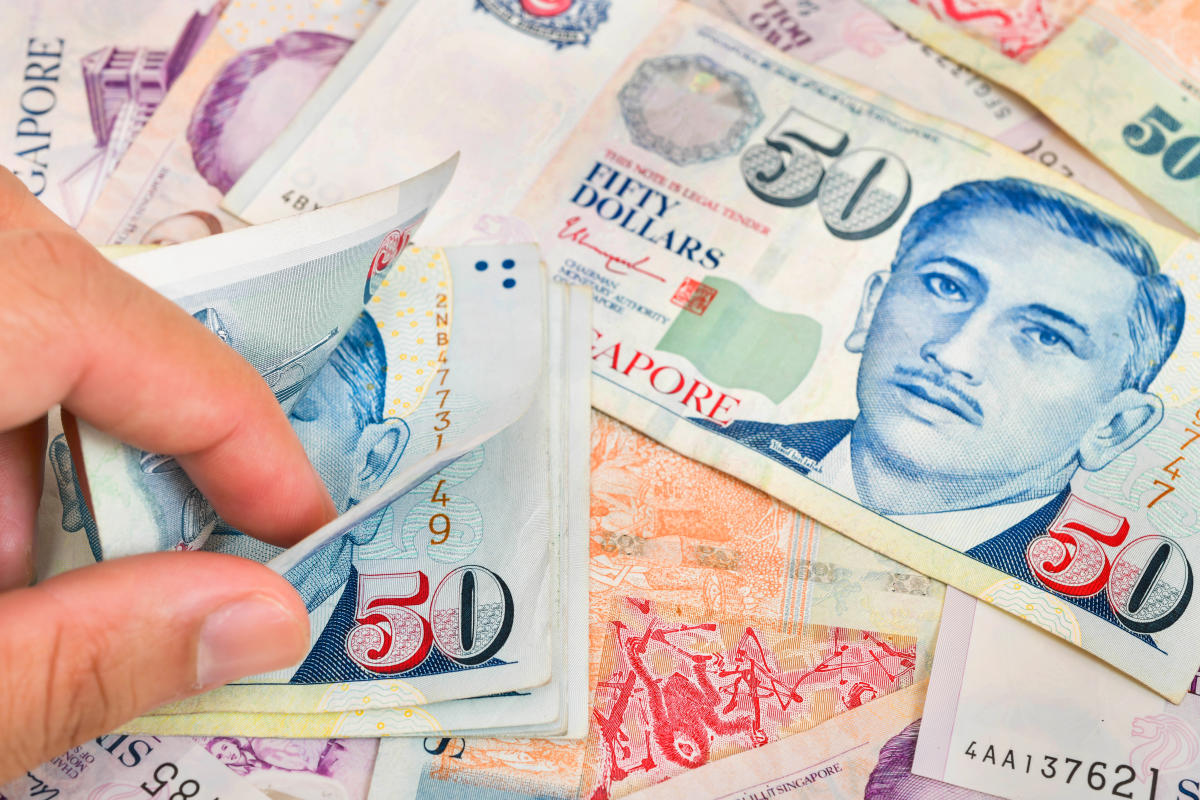SINGAPORE — The Monetary Authority of Singapore (MAS) has released information on the latest tranche of Singapore Savings Bonds (SSB). This tranche has an initial interest rate of 2.72% and an average annual gross return of 2.81%.
The bond will be issued on February 1, 2024, with a ten year term and an allocation size of S$900 million.
According to MAS, investment amounts start from S$500 and are issued in multiples of S$500. The total amount that an investor can hold at one time cannot exceed S$200,000.
Applications for this month’s SSB offering are now open and will close on January 26th at 9pm. The next interest payment will be made on August 1, 2024, and subsequent payments (until maturity) will be paid every six months on February 1 and August 1.
Application hours are Monday to Saturday (excluding holidays) from 7:00 a.m. to 9:00 p.m.
Here is a guide to investing in SSB:
What is Singapore Savings Bond?
Singapore Savings Bonds (SSB) are investment vehicles and are fully backed by the Singapore Government. This is why it is virtually risk-free (you can get your invested amount back at any time), highly flexible (you can exit at any time without penalty), and requires only minimal capital to get started (starting from S$500). That’s why it’s considered possible to start investing.
SSB is a long-term bond with a step-up interest rate system with a holding period of 10 years. This means that the longer you invest, the more interest income you will enjoy.
Who can buy SSB?
SSB is open to individuals aged 18 and above, including Singaporeans, Permanent Residents (PRs), and foreigners. Eligible individuals must have a bank account with one of the three local banks (DBS, OCBC, UOB) and a personal central depositary institution (CDP) brokerage account.
How do I purchase and apply for SSB?
The first step is to apply to purchase SSB through DBS/PSOB, OCBC, UOB ATM, internet banking or OCBC’s Marble application.
Supplemental Retirement System (SRS) investors can apply through their respective SRS operator’s internet banking portal. You cannot apply for SSB directly to a bank.
Allocation results will be announced after 3:00 pm on the third and final business day of each month and can be viewed on the MAS website.
If successful, the Central Depositary (CDP) will notify you by mail and the SRS Investor will receive a notification from the SRS Operator.
If you are unsuccessful or your application is incomplete, the excess amount will be automatically refunded by the end of the second last business day of the month.
Click here for a step-by-step guide on how to start investing in SSB.
What is the maximum savings bond limit in Singapore?
The total amount of SSB you may hold at any one time cannot exceed S$200,000.
Can I withdraw my SSB at any time?
Each SBS has a 10-year term. At the end of that period, the principal and final interest payment will be automatically credited to the bank account linked to your CDP account (for cash applications) or your SRS account (for SRS applications).
However, you can withdraw your investment any month before the bond matures. There are no penalties for exiting your investment early.
To redeem, please submit your request by the closing date through DBS/PSOB, OCBC, UOB internet banking or ATMs and OCBC’s mobile application (for cash investments). On the other hand, SRS investment redemption requests can only be made online through the respective SRS operator.
Is SSB worth doing?
SSB is one of the safest investments to own as it is backed by the Singapore government. Conservative investors with low risk appetite can consider investing in SSB.
SSB is also a good way for investors to diversify their investment portfolios, as the risk of losing money is almost zero.
Additionally, SSB is also one of the easiest and most accessible investment bonds, with a minimum investment of S$500 up to S$200,000.
However, when compared to other investment vehicles such as stocks and unit trusts, returns on SSBs are significantly lower.
SSB is also non-transferable and cannot be traded or pledged as collateral.
Only in certain circumstances, such as the death of a bondholder, will the SSB be transferred to the rightful beneficiaries under the bondholder’s will or under Singapore’s intestacy laws.
follow me Facebook, Instagram, tick tock and twitter.
